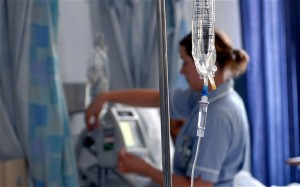
More than 400,000 NHS workers being balloted on industrial action
Over 400,000 NHS staff such as midwives, nurses and ambulance workers are being balloted about industrial action, including potential strikes, over pay debates.
Unison, the Royal College of Midwives, GMB and Unite put forward a coordinated response to the pay deal provided by the government in March, which included a pay rise of 1% for NHS staff, however excluding those who receive an automatic progression in the job rise. The decision by ministers goes against recommendations by the independent pay review board, which suggested an across the board rise.
The progression in the job pay increases are designed to reward professional development and are currently given to about half of NHS staff, totaling approximately 3% a year on average. Scotland have agreed to the pay review board recommendations, whilst Northern Ireland have yet to make a decision. Wales has taken the same approach as England, however they have given additional money to the lowest paid.
Strike over pay
This is the first time in their history that midwives have been balloted, showing the frustration related to this pay issue, with 26,000 midwives involved in the ballot.
Unison has about 300,000 health members, including nurses, therapists, porters, paramedics, medical secretaries, cooks, cleaners and healthcare assistants. Unite is balloting nearly 90,000 members, including those in Northern Ireland and Wales, while the GMB has about 30,000 NHS members, including ambulance staff. If NHS staff vote yes to industrial action, it has been penciled in to start come October.
Unison head of health Christina McAnea told BBC News “Balloting for strike action is not an easy decision – especially in the NHS. But this government is showing complete contempt for NHS workers.” Cathy Warwick, chief executive of the Royal College of Midwives, added “Midwives are at the end of their tether.”
Dean Royles, of NHS Employers, said “I completely understand the frustration and anger staff and trade unions feel. They are clearly annoyed at the government and I understand they will want to protest. But timing ballots and industrial action for the busy winter period is bound to impact on care. This is a critical time when a union campaign risks a prolonged period of real distress for patients this winter.”


